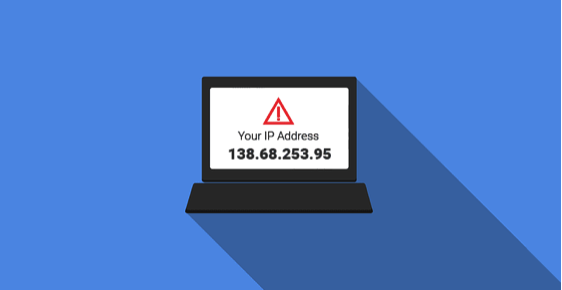A Virtual Private Network (or a VPN, as we know it) is generally used to accessed content, blocked in your country or visit banned websites. Some use it to hide personal data to connect to the dark web – perhaps, that’s why in the eyes of some VPNs have quite a shady reputation.
The truth is, VPN does much more than bypassing restrictions and accessing questionable sites. The primary purpose of a VPN is forwarding traffic from your network to another network. Now you would be accessing a website, not from your IP, but another server. This leaves your data concealed.
Main features of a VPN
- Protecting your data from being transferred to untrustworthy services or exploited by malicious ad trackers;
- Assuring your safety when you connect to unreliable WiFi networks in public places;
- Prevent your data from being logged on torrent platforms and blocked websites;
- Increase your level of anonymity and avoid becoming a target to personalized advertising on search engines and social media;
- Bypassing governmental and corporation restrictions and access forbidden content.

Most common ways to use VPNs
- Using business networks from home or during vacation. Your company can use a corporate VPN to protect the privacy of its data. By downloading such VPN to your home device, you can comply with these standards of data protection and avoid leaking essential data (and possibly getting fired for it).
- Use a home network while you are away. Some VPN servers remember your home network and allow you to connect to it anytime and anywhere. The search results will be adapted to your home location, not to your current one.
- Prevent your browsing records from being visible. If you access a non-HTTPS website from a public Wi-Fi network, it will be apparent to all connected users. With VPN, you modify your IP and feed false information.
- Bypassing geo restrictions. Some websites, however, can’t be fooled that easily: Netflix, for instance, quickly recognizes a VPN, and sends you to the ‘Oops’ page.
- Increasing download speed. If your network is too slow, it’s best to connect to the VPN to download torrent files faster.
How to use a VPN?
You have three ways to use VPN on your PC.
- Using a built-in solution, available directly in the browser’s settings (the most common tool is Opera’s built-in VPN);
- Downloading a VPN software to your PC. There are hundreds of desktop VPN tools that are not tied to a particular browser.
- Installing an extension. For this one, you need to make sure that your browser supports the installation of extensions, go to the official store, and pick a VPN tool.
Browsers with built-in VPNs
Using browsers with integrated VPN services has multiple advantages. For one thing, these tools are tested by millions of users and are native to the browser’s ecosystem. They don’t require you to register an account or acquire a paid subscription.
Pros
- It takes one click to turn a built-in VPN on;
- No additional customization or registration;
- Less likely to log in user data;
- A better-written and tested code (especially the backend section).
- Built-in tools are adapted to the functionality of a specific browser.
Cons
- Slower than extensions and desktop tools
- No possibility to choose a server’s location;
- No password protection;
- No built-in ad blocks or antiviruses.
Examples of browsers with a built-in VPN
- Opera. This browser is mostly known for its open proxy. You don’t have to register and account or upgrade the browser. Simply go to security settings and turn the proxy on (it’s disabled by default). To get access to the tool, it’s enough to download an Opera EXE file and complete the installation.
- Mozilla Firefox. Recently, the development team announced the addition of a built-in VPN. To start working with the proxy, users have to save the newest version of Mozilla Firefox download for windows 7 64 bit, and enable the VPN tool in ‘Settings’. If you are using older versions, you can get by with official extensions – but we are getting to specifics of VPN extensions later.
Desktop VPN software
The main benefit of installing a VPN on a PC is that it’s not tied to a specific browser. You can use it in Google Chrome, Mozilla Firefox, Opera – whichever browser you are using at the moment.
Pros
- It’s a universal solution, suitable for various browsers;
- Flexible location and privacy settings – you can choose a country, pick a password, and enable add-ons (ad blocks, web antivirus, anti-spyware tools);
- Password protection;
- You are usually not required to register an account.
Cons
- A long download and installation process;
- You need to verify the tool’s security on your own – there are no safety guarantees;
- The functionality of a free version is limited; you have to buy a subscription to enable additional features.
The VPN software is perfect for users who use multiple browsers simultaneously. It’s also an optimal solution for companies – the majority of tools have business plans that support multiple PCs simultaneously. Also, customization possibilities are much higher – you can configure the VPN network on your own, specify the location of a server and granting users with various permissions.
Built-in extensions
It’s a mix of built-in solution’s simplicity and customization options of desktop software. WIth extensions, you can pick the location of your network, see the number of users on the server and the evaluation of the network’s speed.
Pros
- Easy to download, install, and use – go to the ‘Extension’ store fo your default browser and find an available VPN service;
- Rich customization options;
- Additional services; an extension typically includes an ad blocker and web antivirus;
- Free to use, but has an improved paid version.
Cons
- An untrustworthy extension can log your data and spy on your online activities – extension are usually less thoroughly tested that desktop tools;
- Limited to a single browser;
- Some VPNs require you to register an account and validate an email address;
- Extensions can significantly slow down the connection speed.
Which one to choose?
The choice depends on your purpose of using VPN. That’s actually why we listed the most common reasons for using VPN – to get you thinking about your main priorities when it comes to VPN users.





























































